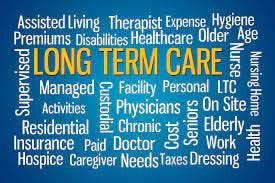Onward, Don Quixote!
a fool's errand?
I’m writing to myself in this post. You're more than welcome to listen in while I’m cogitating. If you have thoughts, ideas, or opinions on the content, I would love for you to share them in the “Leave A Comment” section at the end of this post.
As regular readers know, my wife and I have a daughter with developmental disabilities, and I spent over twenty years working in that field. I also had the experience of caring for my mother and father during the final ten years of their lives, helping them navigate the world of doctors, hospitals, rehab centers, and nursing homes.
Much money is invested in the caregiving field, but it’s spread pretty thin, and direct caregivers don’t do it for the money.
From my experience, the primary focus of our health system is the physical health of the people without commensurate attention paid to the mental and cognitive health of the person. Social and intellectual stimulation is a distant secondary goal.
These are sweeping statements, but they come from my life experiences. So many times when I visited my parents in their nursing home, I noticed the cluster of wheelchairs around the nursing station, with little activity or stimulation for the residents. It seemed such a waste of humanity. When leaving the facility, they would try to get on the elevator with me, and I had to ignore their pleas. I realize that senior care is complex, especially with the challenges of dementia, but we should be able to do better. These people in institutional settings lived long lives and have many memories and experiences, but the marks of individual character and identity are lost to the world.
Travel to some day-habilitation settings for people with developmental disabilities, and you’ll see meager opportunities for learning and socialization. Most residents of group homes aren’t involved in improving their skills. Walk into a group home at 4:30 PM and ask the residents gathered around the TV if they know what they’re having for supper, and most won’t know. They’re not involved in the design of their care; a custodial system reigns.
Attempts to change these problems won’t happen just from better-compensated workers; systemic change is needed. The funder for these settings is the Center for Medicaid and Medicare Services (CMS), and they must be persuaded to raise their concept of care to a more holistic approach that includes opportunities for lifelong learning and socialization.
CMS is a government agency, supposedly answering to the people's will. But what is the people's will regarding caring for their brothers and sisters with significant needs? Is the populace motivated to make changes in the system of care?
How can one old man change this? I’m not sure, but I’m going to try. I’m working on a book that will have an action plan to promote the concept of lifelong learning for people with cognitive disabilities. That would include people with all types of issues, including developmental challenges, traumatic brain injuries, and geriatric conditions. I think we have to raise our expectations for care. It’s a huge task, and I’m developing a work plan for the project that may require me to return to graduate school for some assistance.
The windmills are the “will of the people” and “CMS.” This is my quest
Do any of us ever stop learning? What is the connection between a stimulated and healthy mind and the health of the body? Shouldn’t we take a holistic approach to the care of every person?
A fool’s errand?
“Some people see things as they are and say, why? I dream of things that never were and say, why not?” That’s a quote from George Bernard Shaw that Robert Kennedy often used. He set the bar high for my generation.
I think the effort to try gives us life.





